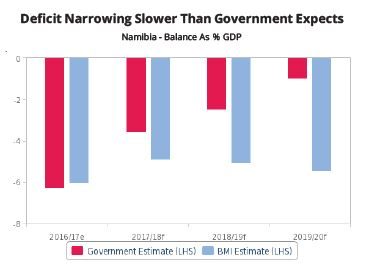
Domestic financial system remains stable, robust and resilient – Central Bank

The domestic financial system remains stable, robust, and resilient to withstand elevated risks and vulnerabilities emanating from the global and domestic economic and financial environment, according to the Bank of Namibia’s Macroprudential Oversight Committee (MOC).
The announcement follows the MOC’s second meeting held on 8 December, to assess vulnerabilities in the Namibian financial system. The meeting determined that there is no need for macroprudential intervention at this stage.
“The analysis conducted further revealed that both the banking and non-banking industries remained liquid, profitable, and well capitalised, while the critical payment infrastructure operated efficiently. Going forward, the inflationary pressures which emanated from geopolitical tensions require close monitoring as it could undermine the economic recovery and negatively impact the health of the financial system,” Bank of Namibia deputy governor, Ebson Uanguta said in m a statement last week.
According to Uanguta, the banking and non-banking industries continued to perform adequately and remained profitable for most of 2022, as observed in the third quarter data. However, he added that the banking industry remains liquid and well capitalised, while the non-banking industry reports funding and solvency positions above the prudential limits.
Accordingly, domestic economic activity improved throughout most of 2022, hence, the Bank has revised its growth projections for 2022 upwards from 3.2% released in the August Economic Outlook to 3.9% in its latest November 2022 projections.
“The anticipated growth in 2022 is expected to be broad-based, although some sectors, such as construction and public administration, are expected to remain weak in 2022. Risks to domestic growth remain concentrated around global developments, most notably inflationary pressures stemming from the geopolitical tensions in East Europe and global supply chain disruptions, notwithstanding internal pressures associated with climate change that could impact growth in the primary industries,” he added.
Meanwhile, risks to the global outlook remain skewed to the downside, according to the committee’s findings. The International Monetary Fund revised projections downwards for the third time this year. “Global growth is expected to slow from 6.0% in 2021 to 3.2% and 2.7% in 2022 and 2023 respectively,” he added.
Furthermore, the banking sector remains liquid, profitable, and adequately capitalised, although not performing at pre-covid levels. This comes after the committee discovered that growth in the total assets of the banking sector rose by 10.7% to reach N$161.4 billion at the end of September 2022.
“Further, the banking sector maintained adequate capital levels to meet the regulatory requirements and absorb potential losses. The non-performing loans (NPL) ratio has improved, declining further by 0.4% points to 5.7% during the third quarter of 2022,” he said, adding that although the ratio is below the Crisis Supervisory Intervention Trigger Point for the first time in more than two years, it is important to note that the NPL ratio is a lagging indicator.
According to the committee’s findings, the Non-Bank Financial Institutions (NBFI) sector growth slowed during the review period but remained profitable and sufficiently capitalised.
“Over the third quarter of 2022, NBFI assets grew marginally by 0.8 percent year-on-year to N$356.9 billion. This was the slowest annual growth since the first quarter of 2020. The slower annual growth in NBFI’s assets as of the third quarter of 2022 is a result of the effects of high inflation, recessionary pressures, and the geopolitical tension in Europe which lead to unfavourable developments in the financial markets. Furthermore, a notable gap was observed between retirement funds’ benefits paid and contributions received, with benefits paid exceeding contributions received,” stated Uanguta.
The Long-term Insurance industry and Collective Investment Schemes remained solvent and stable during the period under review, while Namibia’s payment system and infrastructure continue to operate efficiently. Nonetheless, the Bank of Namibia, in collaboration with the Namibia Financial Institutions Supervisory Authority (NAMFISA), the non-banking institutions’ regulator, will continue to monitor risks and make the necessary interventions, according to the analysis conducted.
“The committee maintains the view that the relief measures that were implemented at the onset of the COVID-19 pandemic by the Bank of Namibia and NAMFISA continue to cushion the financial system against a potentially severe impact, buttressed by the domestic economic recovery. However, the Bank will continue to monitor the impact on households and SMEs and take appropriate corrective measures if warranted,” the deputy governor said.
“The bank will continue to monitor unfolding developments and when warranted, take the necessary remedial macroprudential actions with the tools at its disposal,” he concluded.











































